
We use Google Cloud Translation Services. Google requires we provide the following disclaimer relating to use of this service:
This service may contain translations powered by Google. Google disclaims all warranties related to the translations, expressed or implied, including any warranties of accuracy, reliability, and any implied warranties of merchantability, fitness for a particular purpose, and noninfringement.

Highlights
- Even though she did not study, Jamuna sacrificed her life for her children and worked day and night to educate them. However, there was only lack in his life, he could not read and write. However, she used to pray and read the Quran. Mohana tried to teach her mother the alphabet when she was young. Thinking that she should know Urdu-Arabic, Jamuna kept Maulana at home and studied Arabic.



Where is the branch of Premlalwa in the scorching summer of Nepalgunj? Like in the storyteller Nayanraj Pandey's novel 'Ular', will Ular get stuck on the road in a corner of the city or will it be okay? In the memory of Mohana Ansari, there are no good stories of Nepalgunj, there are tragic stories where life is like a stick - the painful evening when the house burned before his eyes, the day when the landlord threw his belongings on the street and evicted him. Nepalgunj for Mohana is a mixture of many collages with some feeling, some knowledge.

Some are memories, some are forgotten - from Nepalgunj. Mohana wants some memories to sit sweetly in the brain-cells and some memories to fade away. Excruciating heat, heart-shaking cold waves...! But there was also a warm, loving embrace – of mother Jamuna Begum Ansari (68).
Mohana is engrossed in a conversation with her past. The past is meaningful to him, which brings him into contact with the social and political environment of the past. It can be seen in the distant mirror - the mood and struggle of the society at that time. Mohana is digging into the same violent past of her mother. Mother Jamuna and Nepalgunj's struggles seem similar to Mohana. In his heart, there is only one image of a mother - of struggle. Mohana never looked happy on her mother's face. Also, the life of the city and the people are the same - it feels the same to Mohana - sometimes bright, sometimes dark, sometimes buzzing, sometimes deserted, sometimes happy and sometimes sad.
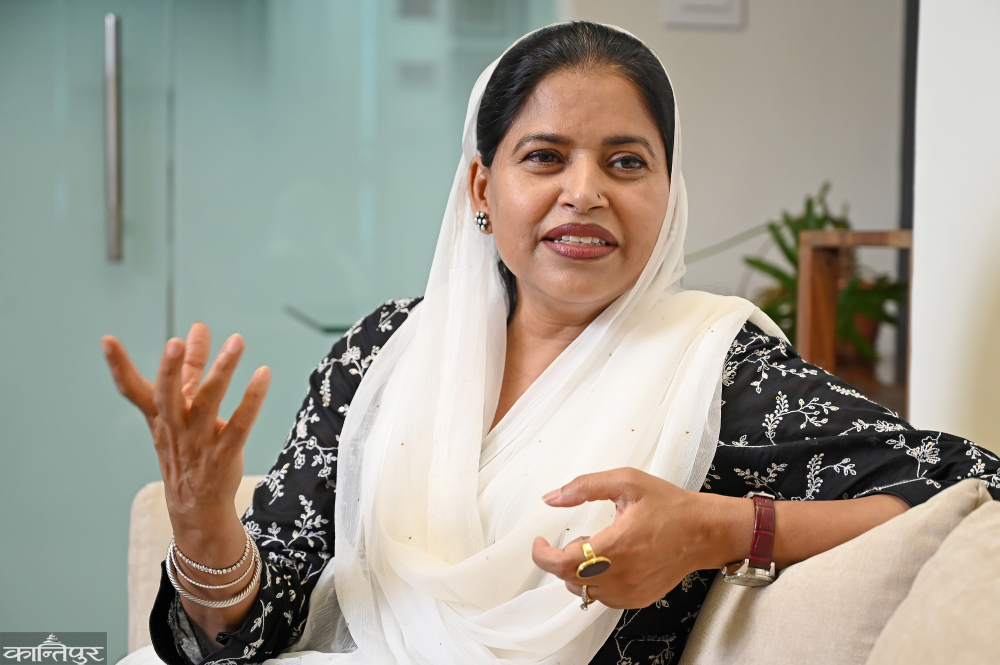 Photos : Angad Dhakal/Kantipur
Photos : Angad Dhakal/Kantipur
Now Nepalgunj has become modern, the squares, roads, countryside and lanes have changed. No matter how much your old city changes, there are still some images in the memory of Mohana - the sounds of the city - passions and tastes, stories of tyrants and cruel people! Among them are - standing on the ground of dreams and nightmares and also dark memory.
***
Born in a Muslim community, Jamuna had no choice, no right to self-determination. They were standing - some walls of the status quo, tradition. And, there was an inconsistent environment of life and the society's traditional beliefs about being a mother. Mohana's understanding is that Muslim society is open, closed and fanatical. It is a bigoted society - under men, who create a circle for women, saying - your life is within this circle.
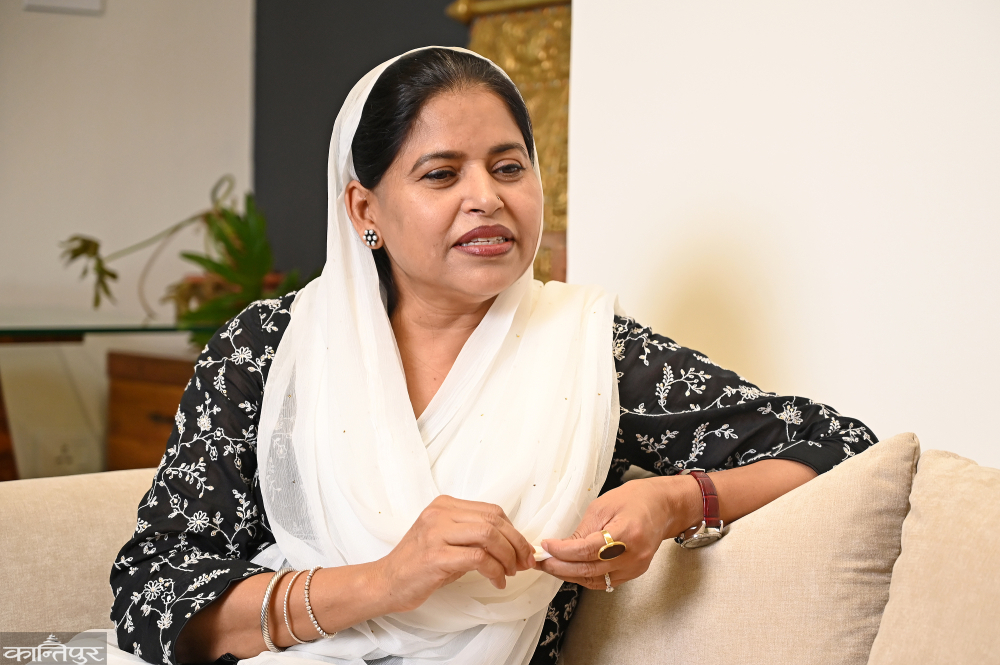 Mohana grew up in a community of mixed culture. There were two types of people living in Bhattitol, which had a liquor industry - Kahar, who carried doli in weddings and Valmiki, who cleaned the garbage of the city. There were also Muslims, who sold bangles and cloth. A Muslim woman used to live in the shop, they used to put bangles on the women. "That's why women in my community can't make any decisions about family, children or their own lives," says Mohana, "But the life of an educated woman is different."
Mohana grew up in a community of mixed culture. There were two types of people living in Bhattitol, which had a liquor industry - Kahar, who carried doli in weddings and Valmiki, who cleaned the garbage of the city. There were also Muslims, who sold bangles and cloth. A Muslim woman used to live in the shop, they used to put bangles on the women. "That's why women in my community can't make any decisions about family, children or their own lives," says Mohana, "But the life of an educated woman is different."
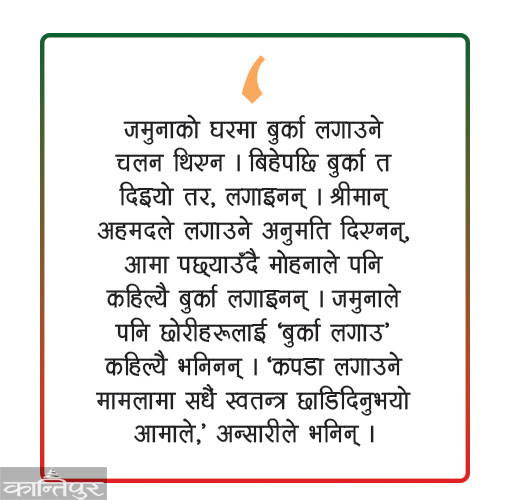
Mohana's life-graph is also different. He is a former member of the National Human Rights Commission. And, a well-known human rights activist. She is the first woman lawyer of the Muslim community in Nepal, a former commissioner of the Women's Commission and also a social activist. But, is the life of all Muslim women the same? "No," says Mohana, "Something is changing in the world of Muslim women." Today's Muslim parents are starting to say that their daughters should be educated too.'
Mohana is haunted by old memories. Mohana was born in Bhattitol near Bageshwari in Nepalgunj - a big liquor industry, tikkis from kebab shops and jalebis from Halbai shops, but life was not as sweet as jalebis. There were nice people in the city as well as some iron hearted ones. Around the year 039, those same horrible people came to Mohana's house - to evict from the house, to take away the house. That memory is sitting in his mind as a terrible memory-wave.
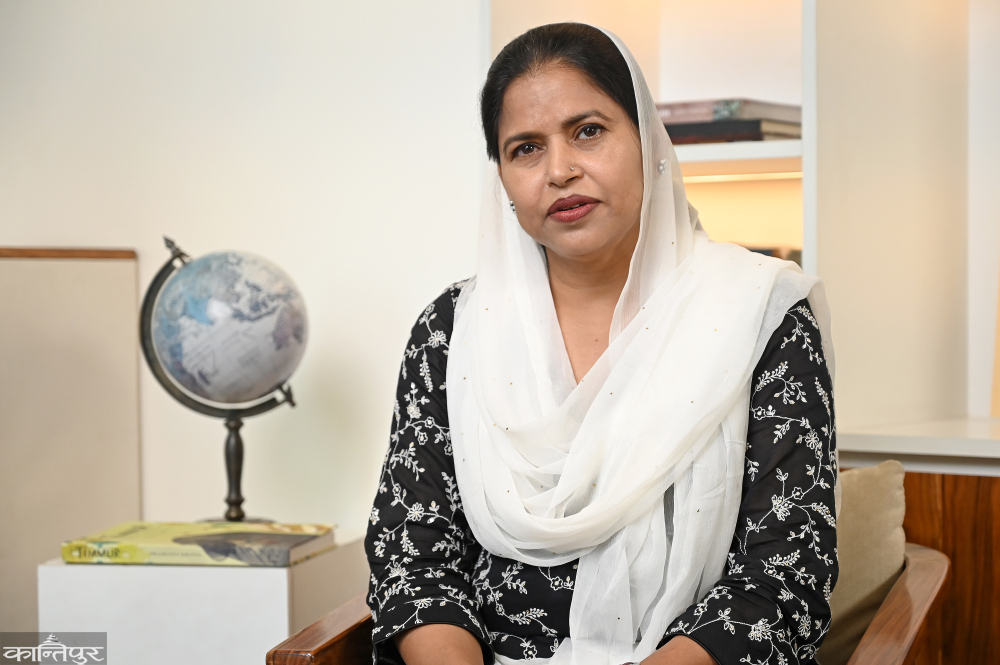 Mohana - that land where the family lived - belonged to Bithauri, that is, Ainlani. Mohana's father Ahmad Ali Ansari used to pay the taxes on that land. Lalpurja was made in the name of the person who oversees the land, after 021 years of surveyor saying 'now becomes', the Lalpurja of that land in Sadarline was not made in the name of Ahmed. In 2003, a case was filed against Ahmed, during which he was paying land tax. A local landlord arrived and claimed, 'All the property is mine'. Then? After that, the Mohana family was thrown out of the house. And, they became homeless.
Mohana - that land where the family lived - belonged to Bithauri, that is, Ainlani. Mohana's father Ahmad Ali Ansari used to pay the taxes on that land. Lalpurja was made in the name of the person who oversees the land, after 021 years of surveyor saying 'now becomes', the Lalpurja of that land in Sadarline was not made in the name of Ahmed. In 2003, a case was filed against Ahmed, during which he was paying land tax. A local landlord arrived and claimed, 'All the property is mine'. Then? After that, the Mohana family was thrown out of the house. And, they became homeless.
The incident of that day is fresh in Mohana's memory. She was studying in 3rd standard. When returning from school, there were 15/16 'lathaits' with big bamboo sticks in the courtyard of the house. And he was moving things out, clearing the house. Items were strewn across the street. "I had to witness a scene like the one shown in the movies," says Mohana, "Suddenly, I was very sad to see that scene and I went to hide in my mother's arms. People will think - this is a story from a fantasy world, but that was the story I experienced.' Ahmed went to Kathmandu to appeal to the Supreme Court. Mohana's mother was alone at home. Removing the roof gave stress to Jamuna, but with what courage, she managed.
Mohana remembers that even at that time her mother had no tears in her eyes. She didn't cry at all, instead she struggled, struggled, fought against the stick. In fact, she was a fearless and resistant woman. Even then Jamuna was not innocent. Jamuna walked away from the abandoned house with her children behind her. A vegetable market was built by the then government of Shri 5 right next to the house. Jamuna kept her children there.
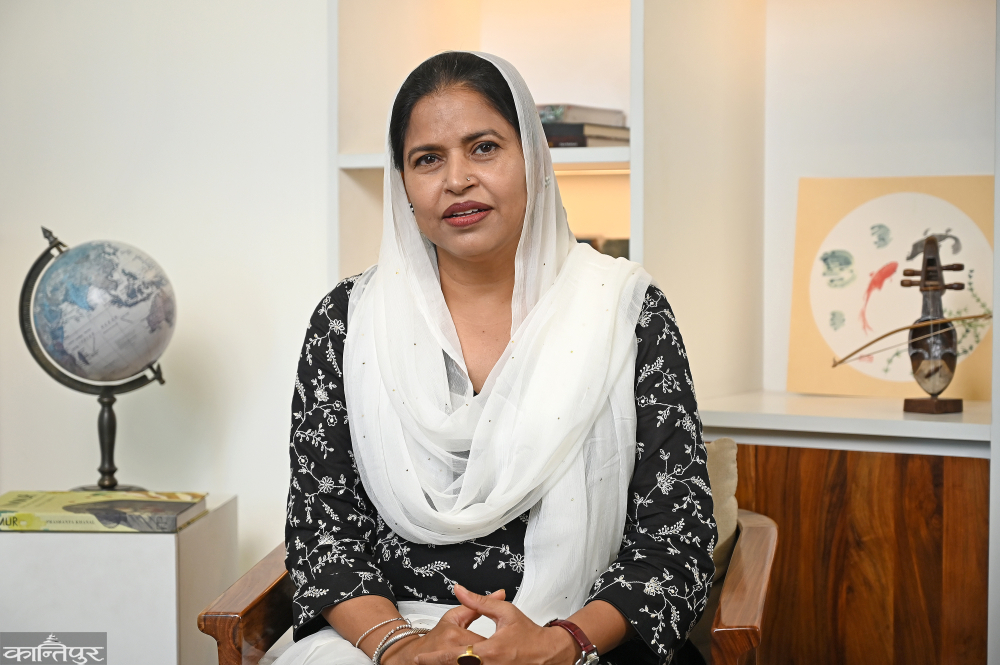 In that empty house, there was only a roof and walls, no windows and doors. Jamuna hung the curtain on the door. They had no food, only a few small dishes thrown on the street. How did Jamuna manage all that stress and pain? Mohana is surprised to remember that time. And it seems, mother is truly a self-respecting fighter. They stayed in that empty vegetable market for a month and a half. Jamuna is still sad that she did not get the help she expected from her relatives. After some time Ahmad came back from Kathmandu and camped, where they stayed for a long time.
In that empty house, there was only a roof and walls, no windows and doors. Jamuna hung the curtain on the door. They had no food, only a few small dishes thrown on the street. How did Jamuna manage all that stress and pain? Mohana is surprised to remember that time. And it seems, mother is truly a self-respecting fighter. They stayed in that empty vegetable market for a month and a half. Jamuna is still sad that she did not get the help she expected from her relatives. After some time Ahmad came back from Kathmandu and camped, where they stayed for a long time.
Ahmed used to work with wood. He had a furniture shop. He used to make drawers, doors, windows in his own beautiful designs. Later he gave it the shape of a wood-factory. From tending the shop to cooking and feeding the 15 furniture workers. She was mostly silent, who never spoke openly.
Camp life was not easy, their camp life was continuous - hospital road, Dhambozhi, Banke village.... Perhaps another objection was waiting in his life. After reaching the third dera, a huge fire broke out in that house. Everything in the house was destroyed. All the property was burnt before Jamuna's eyes. Jamuna alone extinguished that fire. Thick plumes of gray smoke were rising into the sky. Let's say that gray i.e. light gray color was the color of death. And, Jamuna was going through the long stress of that fiery color. The streets, roads and mosques of Nepalganj used to be wonderful for Jamuna. Those days after the house fire were sad. Mohana did not seem to be happy about her childhood.
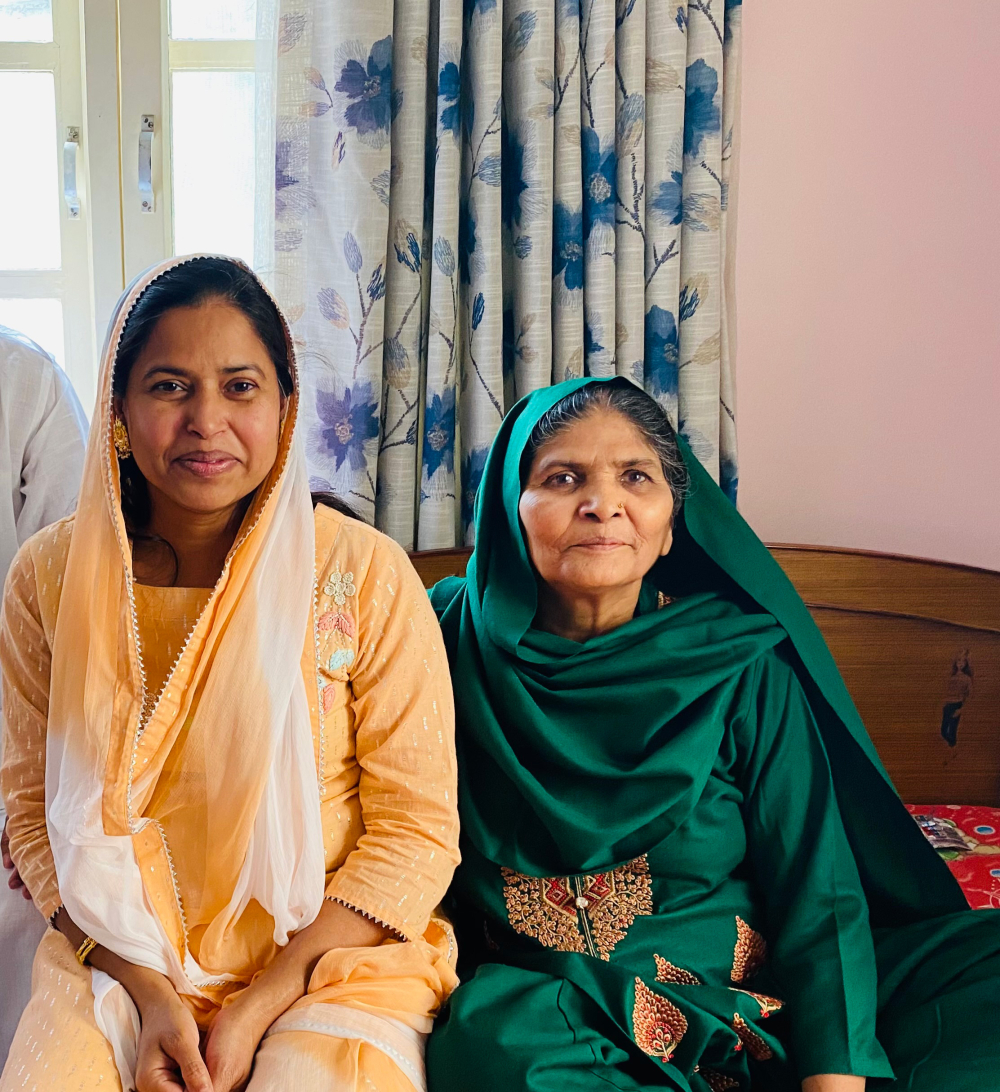 Jamuna was 12 years old when they got married, Ahmed was 22 years old. At that time Ahmed was a wage earner. His family was big - mother-in-law, father-in-law, brother-in-law, Nanda were all there. Jamuna had 5 children - 2 sons, 3 daughters. Miley is Mohana.
Jamuna was 12 years old when they got married, Ahmed was 22 years old. At that time Ahmed was a wage earner. His family was big - mother-in-law, father-in-law, brother-in-law, Nanda were all there. Jamuna had 5 children - 2 sons, 3 daughters. Miley is Mohana.
Jamuna never told the black-and-white story of her time to Mohana, perhaps with the understanding that 'you don't tell your story, you are ashamed of yourself'. Mohana's thoughts were shrinking - Jamuna's life. At home, mother used to fight with father. Mohana thinks that it was a fight of lack, a fight of not being able to fulfill the wishes of the children. Jamuna was known as Mastraine by the people of the village, as she was the wife of a carpenter. There was violence at home, fights between mother-in-law and daughter-in-law. "Maybe that's the reason for mother's shrinking, the environment she experienced," says Mohana.
Even though Jamuna did not study, she sacrificed her life for her children, protected them, devoted herself day and night to their education, and went ahead to fulfill their wishes. However, there was only lack in Jamuna's life. Jamuna does not know how to read and write. However, in Bhattitol Nepalgunj, she used to read Namaz and Quran. Mohana tried to teach her mother the alphabet when she was young. Thinking 'I should know Urdu-Arabic', Jamuna kept Maulana at home and studied Arabic.
***
It was not customary to wear a burqa in Jamuna's house. After marriage, she was given a black burqa, but she did not wear it. Her husband Ahmed did not allow her to wear it, so she wore a normal saree. Following her mother, Mohana also never wore a burqa. Even Jamuna did not tell her daughters to put on the burka. Mother always left us free when it comes to dressing. But he wanted to learn housekeeping. He also encouraged me to read,' says Mohana.
Men used to go to the mosque in the village, who were excited to pray with the sound of the azan. Women used to go to shrines and worship at home. During the festivals, Jamuna used to offer Namaz, cook food, worship it, that worship was called Fatiha. Mother used to cook very delicious food at that time. He used to make unbaked bread by hand. Biryani, Korma too. He does not eat fish, but he used to cook it very delicious.'
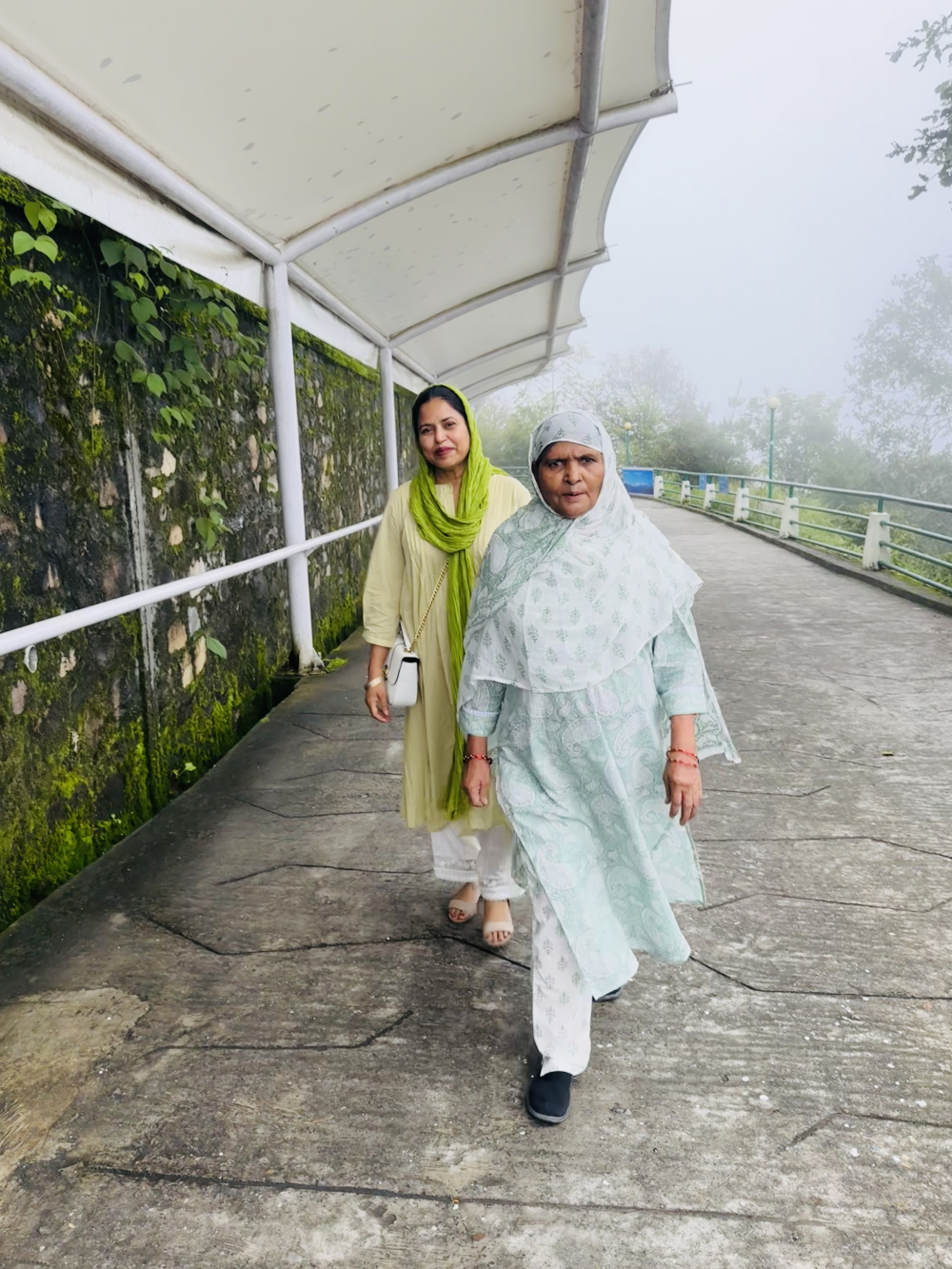 When he left Gharbari tol and camped on hospital road, Ahmed used to invite people from the local government headquarters to eat at his house. The top cop, the judge used to come back praising his food.
When he left Gharbari tol and camped on hospital road, Ahmed used to invite people from the local government headquarters to eat at his house. The top cop, the judge used to come back praising his food.
Jamuna wanted her daughters to become skilled in household work. Jamuna said that her daughter should be educated. Ahmed used to say that 'the daughter should be empowered'. Mother used to stop Mohana from wandering outside the house. She used to say, 'Don't go out, it's not a good habit, stay at home, do the housework.' In the same way, daughters should be brought up.'' If you don't work, she would punish you - sometimes she would beat you, sometimes she would tie you to a bed. Mohana did not have the heart to do what she was asked to do.
Jamuna used to say to her daughters, 'Don't go out again' for the fear of being seduced. "We have been tied to the bed many times as duluwai. He would not let him go outside the house, he used to say that he would get spoiled. What is the definition of deterioration? I never understood,' Mohana remembers, 'I just wanted to swing outside. That's why there was always a fight with my mother.'
***
Jamuna's soft face sometimes felt a line of happiness running through Mohana. Mother looked happy when she told them the story. In the dark night, under the open sky, in the dim light of Tuki, lying on the bed, Jamuna used to tell stories - about the bandits of Madhesh, about 'Alibaba and Chalice' thieves. In Kalamme night, he used to have children's ang jiring than 'Khulja Simsim'. She used to tell the story of the soul in an interesting way in the silent darkness - When a person sleeps at night, he should not sleep hungry and thirsty. His story was that if the soul is thirsty in sleep, it goes out in search of water. And? When the spirit enters the bell to drink water, if someone wears the bell, it is always imprisoned there and does not return to the body.
Keeping her children around, Jamuna used to recognize the stars in the sky – this star is this, this star is this. Showing the brightest star, she used to say to Mohana - that star is your sister. Mohana's 2-year-old sister passed away due to illness. Mohana kept on thinking till the end – the twinkling star is really my sister. She was sitting on a couch in the courtyard alone in the dark night looking at the stars in the sky.
In the time of Jamuna, Nepalgunj was not as magnificent as it is now. Jamuna is reminiscing about some images of that old city - memories of colors and tastes. How were the lanterns hanging in the market shop? How did the people of Nagar Panchayat put oil in the lantern? Mohana's family continued to get into trouble. Jamuna herself went to fight the case. She used to think a lot while putting lapche on paper. She used to say to Mohana - read carefully, what is written here? And only I bring lapche. Mohana feels that mother is practically gone.
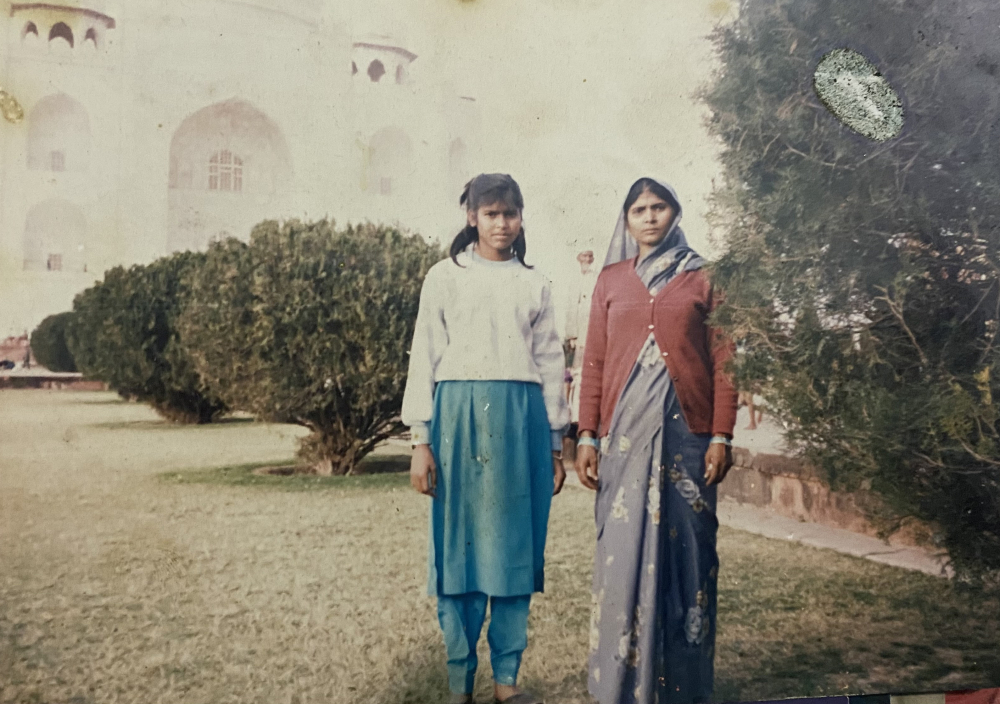 Mohana passed her SLC from Mangalprasad Secondary School in Nepalgunj. By the time she gave her SLC, the 'must get married' atmosphere was building, when she was 15 years old. Jamuna's mother pressured her to get married, but Ahmed's father did not agree, he kept saying, "You should study". Jamuna said 'After studying and getting married'. After a long time, she said - let the studies continue. Thus Mohana's marriage was stopped and took place in Nepalganj in 18 years. Nowadays, after seeing her daughter on TV screen, Jamuna says – Ai tan ta wakil po hos hai! He does not care that his daughter works in the Women's Commission and the Human Rights Commission. Now Mohana has two grown up daughters. She thinks that being a mother is the greatest feeling in the world.
Mohana passed her SLC from Mangalprasad Secondary School in Nepalgunj. By the time she gave her SLC, the 'must get married' atmosphere was building, when she was 15 years old. Jamuna's mother pressured her to get married, but Ahmed's father did not agree, he kept saying, "You should study". Jamuna said 'After studying and getting married'. After a long time, she said - let the studies continue. Thus Mohana's marriage was stopped and took place in Nepalganj in 18 years. Nowadays, after seeing her daughter on TV screen, Jamuna says – Ai tan ta wakil po hos hai! He does not care that his daughter works in the Women's Commission and the Human Rights Commission. Now Mohana has two grown up daughters. She thinks that being a mother is the greatest feeling in the world.
From childhood to youth, Mohana's struggle has been - for education, she has been kicked out of school several times because she could not pay the fees of 35/40/100 rupees. At that time, Jamuna used to say - 'Don't be disappointed, father will pay the fee anyway.'
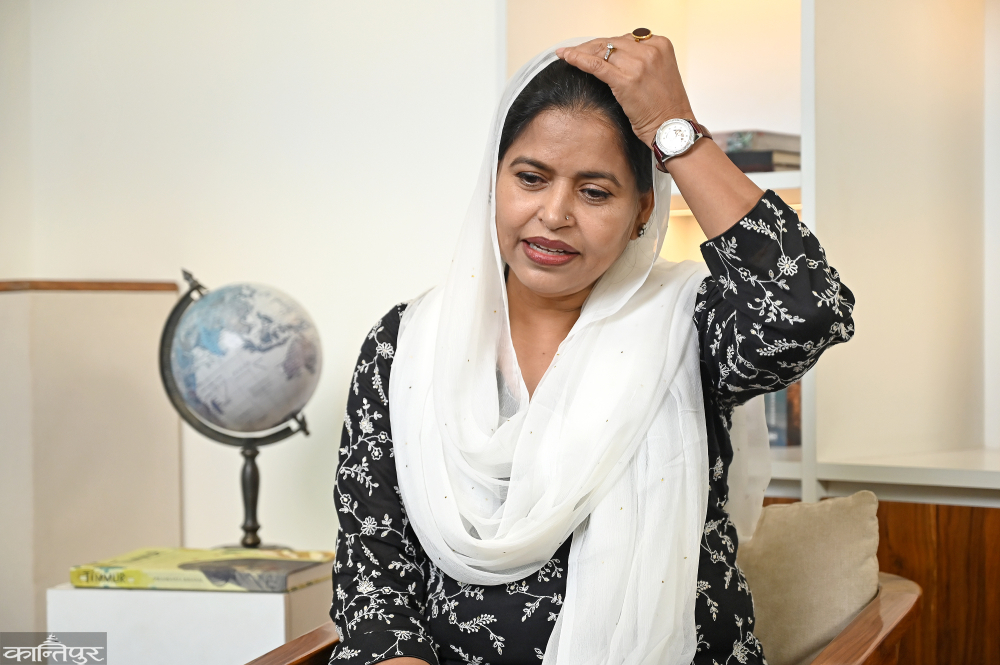 Mohana had another struggle – with the community. She is often surrounded by some stigmas of the society.
Mohana had another struggle – with the community. She is often surrounded by some stigmas of the society.
People used to say - this is loose, it will spoil the society, now they are the ones who say to their children, 'Be a daughter like Mohana!' "Mother's whole life was spent huddled inside the house," she says. Nowadays, Jamuna lives in Nepalgunj with her son. After her husband passed away, she bought two electric rickshaws, she has a driver to drive them, she has increased confidence after having money in her hand. Mohana is in Kathmandu these days, but Nepalgunj is everything to her. Safe in her brain is the city of enjoyment and dreams – Nepalgunj, whose color and taste reminds her that she always goes to the same city where her mother lived.
 प्रकाशित : भाद्र ४, २०८१ १०:३८
प्रकाशित : भाद्र ४, २०८१ १०:३८

 २३.१२°C काठमाडौं
२३.१२°C काठमाडौं











